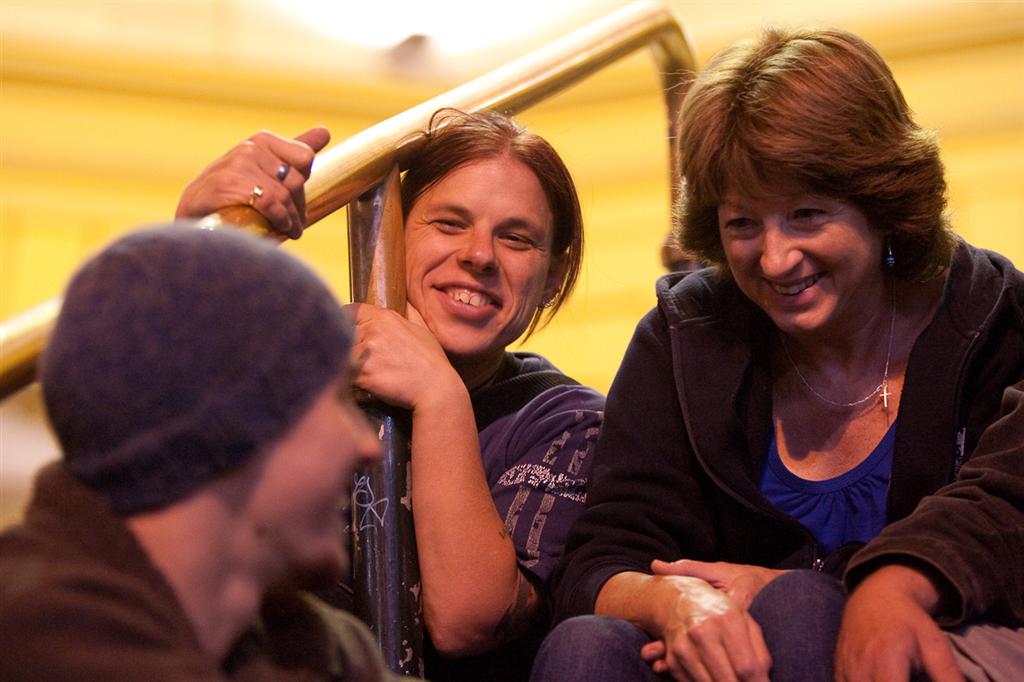
Anne Mitchell is a charity worker who doesn’t mind being shouted and sworn at. For the past 15 years she’s made a weekly visit to the Flinders Street Station steps. She gets to know the homeless youngsters there so that she can help them.
Volunteers who go with her can find it a bit daunting. On her first night, one of them got heaps of abuse from a homeless girl. The volunteer backed away, scared. The next night, Anne told her to do the opposite. If the girl abused her, she said, move forward and give her a hug and say ‘Hi!’. This worked. “Kids have a hard shell and want to ‘test you out’ by making you angry,” Anne says.
“I say that every day is a new day. Look for something good in a kid, not judge them on what happened yesterday. We praise them for anything good they do. If a young person gets a job and gets fired after a week, it’s still a step forward. Maybe in their next job they’ll last a month.”

“Outreach” means visits to teenagers anywhere from Sunbury to Pakenham. Anne says, “We have to invest a lot of our time in each case. In a week we would probably each do about eight of these visits. We may take them to negotiate with Centrelink or housing officials, or support them through involvement with police. Drug users need complex work in counseling, detox and rehab.”
Steps does not apply for government funding because the conditions often don’t match what homeless people really need. Instead, Steps relies on sponsors, charities and donations. When a Rotary member in South Melbourne died, his family told mourners to donate to Steps rather than spending on flowers.
A recent study found that one homeless woman from the age of 12 to 21 had cost the State $5.5 million in sanctions and support.
“Sam”, now 19, went into care because of a violent stepfather and himself became a violent addict. Anne and volunteers helped him for months and found that he also had a softer, caring side, particularly towards young girls who were becoming street kids. Sam was able to get a small flat and then a part-time job.
A critical group is young people leaving institutional care. Close to a third of them become homeless. Steps has a special program, ‘Independent Futures’ to get them through the transition into living independently in the mainstream community.
Highlight of each year is a Christmas lunch at the Collingwood headquarters, where volunteers give out food hamper bags, vouchers and presents to 150-200 people.
(Tony Thomas is a member of the RC Central Melbourne-Sunrise)
